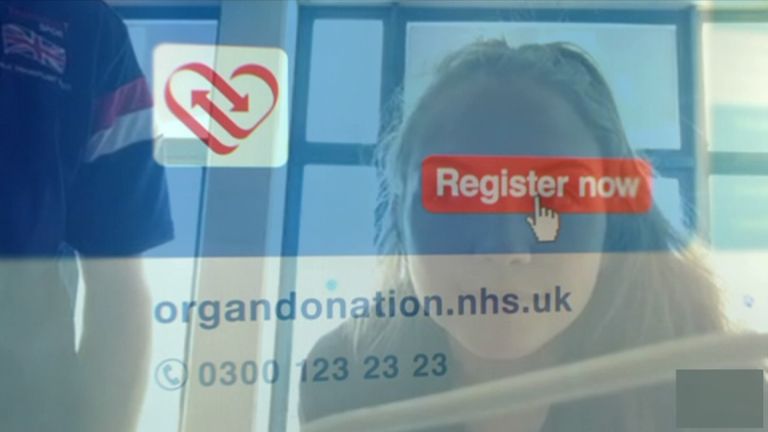Organ donation: Govt urges families to end 'fatal reluctance' to discuss
The new process will require anyone objecting to donation to opt-out, raising ethical questions for some.
Tuesday 12 December 2017 07:31, UK
Families have been urged to confront a "fatal reluctance" to discuss organ donation as the Government launches a consultation on a new system that will presume consent on the part of potential donors.
Under the current system donors in England have to opt-in for a donor card if their organs, including eyes, heart, liver and kidneys, are to be made available for use on patients with a critical need.
The new process, announced by Prime Minister Theresa May in her conference speech in October, will require anyone objecting to donation to opt-out, raising ethical questions for some.
The aim is to tackle a national shortage of donors and organs that costs three lives a day. Wales already has an opt-out system in place. Scotland and Northern Ireland are considering similar schemes.
Launching the consultation Health Secretary Jeremy Hunt said: "This is really a massive call to action.
"As a country we have 6,500 people waiting for a donation and up to three people die every day because they are not able to get the organ they need to stay alive.
"We know more than 80% are willing to be an organ donor but only about a third are on the register.
"We want to start a conversation about the way to change that - it can be a difficult subject to broach, but overcoming this fatal reluctance to talk openly about our wishes is key to saving many more lives in the future."
:: Opinion - 'We're so glad we donated our daughter's organs'
The three-month consultation will examine issues including how much say a family should have over a person's decision to donate their organs, how different groups will be affected by the new system and when exemptions to "opt-out" might be needed.
Millie Banerjee, chairwoman of NHS Blood and Transplant, said: "We support any initiative which leads to more organ donors and more lives being saved.
"We hope the consultation starts a national conversation about organ donation."
Among the groups that will object to the new system is the Christian Medical Fellowship, which believes presumed consent is analogous to coercion, and that opt-in systems tried elsewhere have not increased donation rates.
Chief executive Peter Saunders told Sky News: "Organ donation should be a gift, it should not be under coercion or without permission.
"The best way of increasing donation is through nurse counsellors in organ donation, not by introducing an opt-out system which is unproven.
"The Government should not be spending millions of pounds of taxpayer money on something that is unproven."
The consultation ends on 6 March next year.




